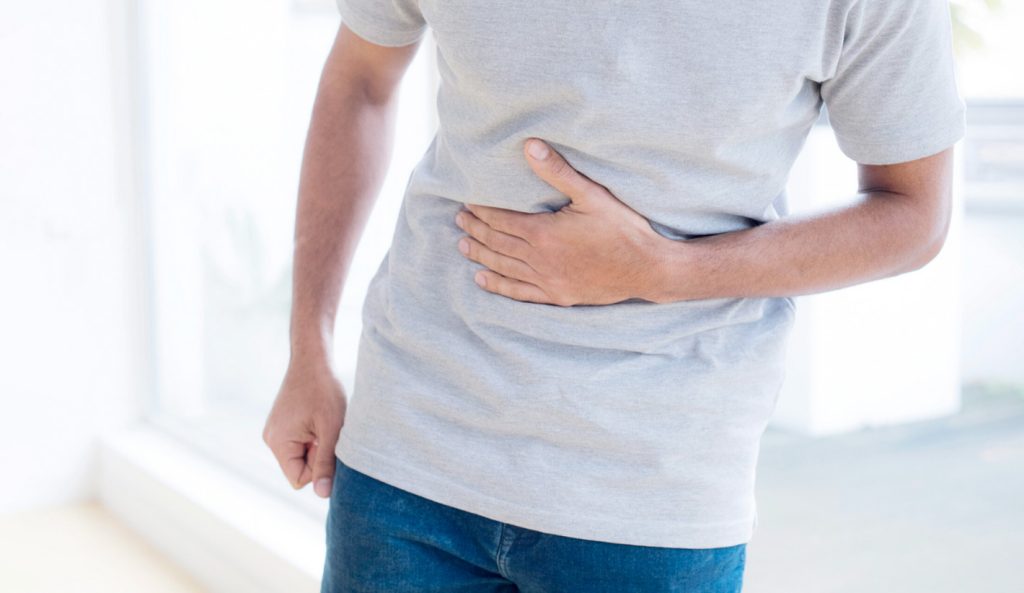
Functional disorders are chronic conditions that have impaired bodily processes, which cannot be explained by a structural abnormality. In medicine, functional disorders have an overlap between various body systems as symptoms tend to be general and nonspecific. Examples of functional disorders in males are chronic prostatitis/chronic pelvic pain syndrome (CP/CPPS) and irritable bowel syndrome (IBS).
Chronic prostatitis/chronic pelvic pain syndrome is a male disorder with four subtypes including acute and chronic bacterial infections, and inflammatory and non-inflammatory causes with clinical features of pain in the pelvic region, irritation with urination, pain with ejaculation, sexual dysfunction, depression and/or psychosocial dysfunction[1]. Chronic pelvic pain is a primary component of the condition and is present for at least three of the preceding 6 months. The most common type of CP is chronic non-bacterial prostatitis, which makes up roughly 90-95% of prostatitis cases. This leaves most CP cases without a clear cause, making it difficult to devise treatment approaches.
Like CP, IBS is the most common functional gastrointestinal disorder with symptoms including altered bowel movements, increased sensitivity to pain, and inflammation. Both functional disorders have worldwide prevalence and diagnosed mainly by clinical presentation rather than a diagnostic test. One population study examined the relationship between CP and IBS and found CP cases to be highly associated with a prior IBS diagnosis meaning potential overlap among functional disorders[2]. Moreover, research suggests a relationship between body systems referred to as the bladder-gut-brain axis[3]. Therefore, thoroughly understanding the relationship between CP and IBS, integrative medical treatment focuses on a multisystem support including the brain/nervous system, gastrointestinal system, and genitourinary system.
Biofeedback, has been shown to be effective with CP/CPPS based on the principle that maximum muscle contraction prompts maximum muscle relaxation. This mechanism addresses the chronic pain aspect of CP/CPPS and focuses on muscular reeducation, which may ultimately provide symptom relief[4]. Integrative gastrointestinal support centers on improving gut barrier integrity, and decreasing inflammatory processes[5]. Often times, a food elimination diet followed by food reintroduction are also recommended to isolate common food sensitivities that contribute to CP/CPPS and IBS. Phytonutrients such as quercetin, play a positive role by modulating immune function to prevent and treat diseases, including those with potential microbial etiology. Phytonutrients belong to a group of polyphenolic substances commonly found in the plant kingdom in the rinds and barks of certain foods such as onions, grapes and green tea[6].
Even though these are common treatment strategies to treat CP/CPPS and IBS, integrative medicine acknowledges that each individual is unique and will often include additional treatment strategies to improve functional disorders. As this brief article outlines, there is a strong interconnectedness between the functional disorders of chronic prostatitis and irritable bowel syndrome in which integrative assessment and treatment strategies can offer significant improvement for males with these conditions.
References:
[1] Vicari E, Salemi M, Sidoti G, Malaguarnera M, Castiglione R. Symptom Severity Following Rifaximin and the Probiotic VSL#3 in Patients with Chronic Pelvic Pain Syndrome (Due to Inflammatory Prostatitis) Plus Irritable Bowel Syndrome. Nutrients. 2017;9(11):1208.
[2] Liao CH, Lin HC, Huang CY. Chronic Prostatitis/Chronic Pelvic Pain Syndrome is associated with Irritable Bowel Syndrome: A Population-based Study. Sci Rep. 2016;6:26939.
[3] Leue, C., Kruimel, J., Vrijens, D. et al. Functional urological disorders: a sensitized defence response in the bladder–gut–brain axis. Nat Rev Urol 14, 153–163 (2017).
[4] Clemens JQ, Nadler RB, Schaeffer AJ, Belani J, Albaugh J, Bushman W. Biofeedback, pelvic floor re-education, and bladder training for male chronic pelvic pain syndrome. Urology. 2000 Dec 20; 56(6):951-5.
[5] Nickel C. Prostatitis. Can Urological Association Journal. 2011 Oct; 5(5): 306–315.
[6] Medical Economics. Physician’s Desk Reference (PDR) for Herbal Medicines. Montvale, NJ: Thomson Healthcare; 1998.